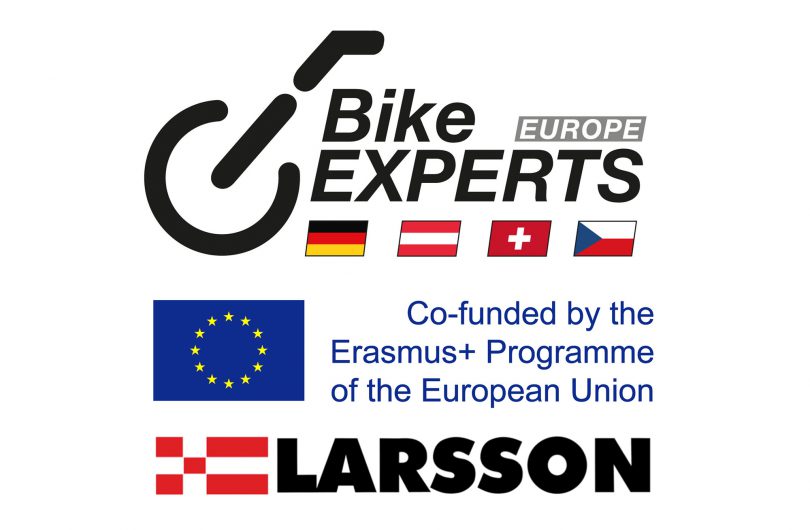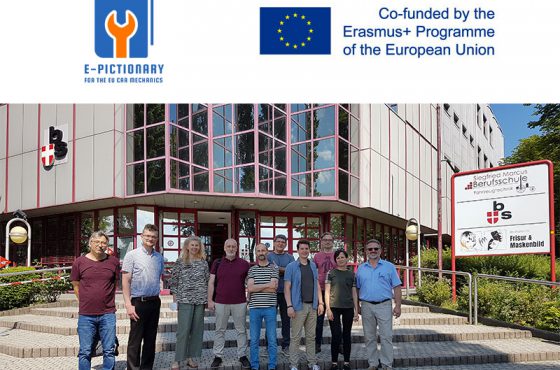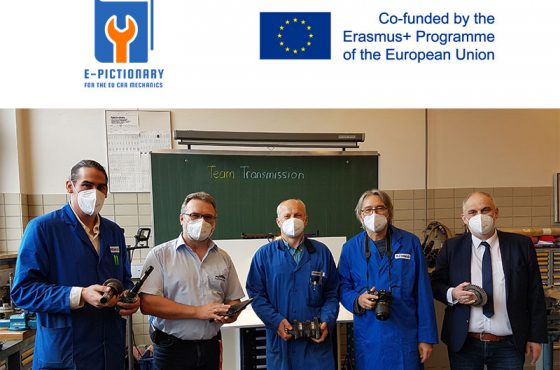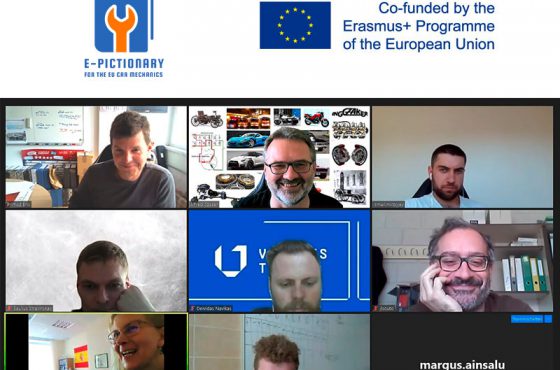Bike Experts Europe: Uhrenvergleich in der Schweiz
BIKEEE – Europäische Vernetzung der Zweiradausbildung
– Ziele:
- Vergleich der Bildungsabschlüsse,
- E-Mobilität Zweirad und
- Vernetzungstreffen.
Im europäischen Zweiradhandwerk wächst zusammen, was zusammengehört, wie die Initiative Bikeeee!!! zeigt. Ein Bericht vom Workshop in Aarau (Schweiz).
Der zweite Workshop 2018 der Initiative Bikeee!!! (Kürzel für Bike Experts Europe) fand Ende Mai in Aarau (Schweiz) statt. Beteiligt waren die Vertreter aus Deutschland (Zweiradmechaniker Landesinnung Hessen), der Schweiz (2rad Schweiz), Österreichs (Berufsschule für Kfz-Technik Wien) und Tschechiens (Intergrovaná Skola Brno).
In der Geschäftsstelle von 2RadSchweiz diskutierten die Teilnehmer u.a. über gesetzliche Grundlagen und die Bedingungen der Elektromobilität und alternativer Antriebe in den einzelnen Ländern. Eingefügt wurden auch die letzten Bausteine eines synoptischen Vergleichs der Bildungssysteme, welche die EU fordert. Hier ging es auch darum, die Inhalte der Abschlussprüfungen für die Erstausbildung und die Meisterprüfungen zu katalogisieren. Seit kurzem gibt es auch eine eigene Facebook-Seite der Bike Experts Europe.
Medienpartner des Projektes ist »bike und business«. Mit von der Partie ist auch die Hamburger Großhandelsfirma Matthies und Larsson, unter deren Dach Matthies seine ausländischen Märkte steuert (Polen, aber auch UK, Italien sowie Spanien). Der „offizielle Förderer des europäischen Zweirad-Handwerks“ unterstützt mit seinen Netzwerken und mit technischen und betriebswirtschaftlichen Know-how.
Am 10. und 11. Januar 2019 findet in Wien der nächste Europacup der Zweiradberufe statt.
www.bikeundbusiness.de/europa/
_____________________________________
The aim of the project is to create professional profiles of graduates (including both primary and lifelong education graduates) in the field of bicycles and motorcycles. Profiles are going to be created with application of the European mechanisms commonly used in vocational education. Created profiles will be the basis for uniting educational content and learning outcomes at both levels.
Systems, content and conditions of education in cooperating countries will be compared and examples of good practice will be used across the whole Europe.
All project activities will be taking account of the rapid development of alternative drive systems, which are currently expected to grow in number in the production of new two-wheelers. It is therefore necessary to create professional profiles for primary and lifelong education to match the anticipated development of new technologies. These profiles would serve as a basis for updates and unification of educational programs.
Activities of the project will be provided within two parallel ways:
- Primary education
- comparison of educational systems, educational contents and conditions (minimum equipment)
- comparison and unification of content of final examination
- creating a professional profile
- comparison of the results of education through international competition between participating countries, preparation of documentation for the competition (rules, test questions, practical tasks)
- implementation of the topic of alternative drive systems with an emphasis on environmental protection and sustainable development
- Lifelong education
- analysis of forms and types of lifelong learning in different countries, legislative framework of lifelong education (minimum equipments)
- comparison and unification of the content of professional examinations; determining the content and conditions of the master examination in those countries where the master examination is not yet implemented
- creating a professional profile
- implementation of the topic of alternative drive systems with an emphasis on environmental protection and sustainable development
To achieve the objectives of the project the following resources will be used:
- project meetings (development of professional profiles, outline proposal for the content of final examinations)
- ongoing communication via e-mails and phones
- preparation and creation of documents
- practical comparison of outcomes of education through international competition
Within the implementation of project activities, participants will be encouraged by exchanges of experiences related to education, by comparing teaching methods and by sharing examples of good practice that can be applied in the classroom. It will provide support for participating organizations by improving the quality of education, thereby increasing the attractiveness of their educational programs. It will also provide support for the possibility of applying the gained outputs (professional profiles, the contents of final exams) in education. Participants will be able to build on the outcome of the practical comparison of learning outcomes, which will be an important motivator for application of shared examples of good practice arising from the comparison of education systems and conditions.
Indirectly supported target group of the project consists of pupils in initial education (about 3150 people), who will have the chance to attend a practical comparison of the results of education. There will be school rounds and national rounds of those comparisons. This has a significant motivating impact on education. In addition, this target group will benefit from innovative educational programs. Their adjustment will be based on implementation and outputs of the project with regard to the development of new technologies, particularly alternative fuel vehicles. This will increase their opportunities on the labour market and given the international scope of the project it will also increase their mobility. Except for international comparison, the same support will be applied for lifelong education participants (about 1500 people).
Employers will be supported by increased quality of graduates and by possibility of lifelong education of their current employees.
Offered lifelong education corresponds to the current technical developments in the field of two-wheelers. It will ultimately increase their competitiveness of which will also benefit the end customer.
All the above-mentioned positive impacts of the project have a long-term nature of European-wide usability.




